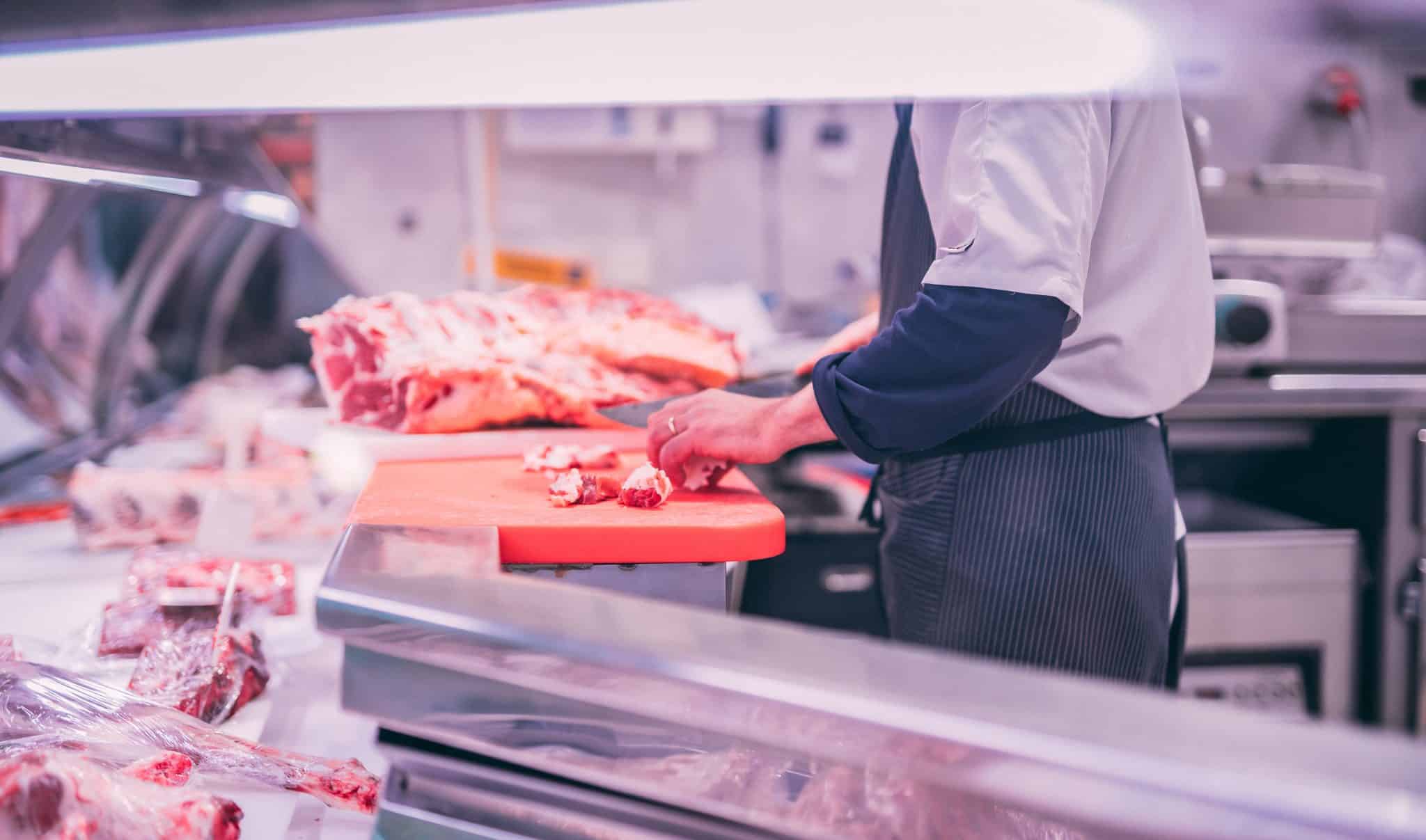
6 Wealth-Building Lessons from Khadijah (RA) Every Muslim Should Know
03 December 2025 8 min read


Ibrahim Khan
Co-founder
6 min read
Last updated on:
Yesterday I paid £37.50 for 3 kg of beef and £12 for 2 medium chicken at a butchers in Goodmayes.
I was annoyed – but also wanted to make sure I was directing my anger in the right direction. So I’ve spent today making calls to various key players in the meat and poultry industry to understand why exactly prices are so high.
In this article I lay out what I found. There’s a lot we, the average consumer, are missing from what is going on.
I will only focus on lamb and chicken in this article as it constitutes approximately 30% and 65% of the Muslim protein spend, with beef only attracting 5% or so.
I’ll first mention some key trends in lamb and chicken, then turn to how we know if someone is over-charging, and some practical advice on what we should be doing to help the pricing situation.
Firstly, the cyclical lambing season means that generally from January onwards there is gradually less lamb available, with the lowest supply availability around May (after Easter) resulting in peak lamb prices. As the lamb supply increases the price falls to its lowest point around September before it picks up again for Christmas trade. The Welsh lamb levy board explain it nicely in the following graph when they advise farmers when to market their lambs.
Secondly, this cyclical seasonality was exacerbated this year by the flooding that we suffered a month or so ago. Lamb being a natural outdoor grazing animal meant the flooding affected a lot of the lamb they would graze in the UK (pretty much all of them) and farmers took less of them to the live-stock market meaning supply was reduced somewhat.
Thirdly, the huge spike in demand from us, the consumer, has led to farmers selling their lamb at higher prices (its a simple auction process) and for end retailers selling it us for more. Ultimately, if we don’t buy more than we need, prices will go back to normal.
Fourthly, there is a strong demand from the supermarkets that constitute about 45% of the UK’s lamb buyers, and when such a large chunk of the market demands more, that naturally distorts prices. This is linked though, to the above point about us as the consumer demanding more generally.
The result is that there is a real shortage of affordable meat available for independent shops and retailers (such as halal butchers), and they then pass on the expensive meat to us. This can be addressed though if we don’t over-buy.
The poultry industry is not susceptible to as much seasonality as the lamb industry is as most chickens are reared indoors in a climate-controlled environment.
However the key disruption in this industry is that about 40% of the UK’s chicken is imported from Europe – and this key supply chain has been disrupted with coronavirus. See this FT article for further colour, though it is primarily addressing industrial supply chains. So although British chicken production costs hasn’t gone up significantly the big shortage in the general market has meant suppliers scrambling for supply.
There is no simple answer unfortunately as meat and poultry prices are constantly changing and the retail outlet we are buying from may well have bought at a different time to the one next door to it (and so achieved different prices). One business may also be run more efficiently with lower overheads and operating costs.
Also, different cuts of meat are different. So some bits of meat are “essentials” or “staples”, whilst others are better seen as “luxuries”.
My impression, having asked a few butchers and producers and talked to a few consumers, is that we should reasonably expect prices to be about 20-50% higher than normal – and that this should only remain the case for the next week or so if consumers start buying at their normal rate. Another way of benchmarking is to look at what the major multiples are charging online for their meat, and making an adjustment for Halal-related credentials and costs. Any more than that, and that is probably a red flag and you should report to the Competition & Markets Authority
If however a shop is selling a luxury (e.g. chocolate) for a higher mark-up, I’d be happy to accept that up to 100% of the standard price.
Another easy way to check if a shop is taking advantage of you is to check how much it is selling staples such as toilet rolls, nappies and hand sanitisers for. The reason why these are a good test for price-hiking is because there is no shortage of these items and so if a shop is overcharging here, it is doing it only to make a quick profit on peoples’ difficulties. If it is selling them for a much higher price than normal, you can expect that they are taking this approach into their meat section as well.
(However note that the current extra demand has resulted in toilet-roll manufacturers working throughout the night which would inevitably result in extra costs due to over-time etc. but these should only result in modest increases of 5-10% at most.)
Another good way of working out if someone is ripping you off is being willing to leave the shop and go down the street to the next couple of butchers and get their prices too, or check online to see what online halal meat shops are charging. It’ll quickly become apparent if someone is way out.
Firstly, stop panic-buying and hoarding. We are quick to point fingers at butchers, but they are only reacting to our behaviour – which has been irrational and deeply irresponsible in many cases.
Secondly, we must all make sure we must use every bit of that food we have bought. This advice is particularly addressed at panic-buyers. There is now £1 billion more food sat in our homes this week than there was last week.
We waste on average about one-third of food produced for human consumption globally, and each family wastes around £470 per year on food. Given that, I am very concerned that not only have the hoarders caused massive issues for the entire country, the food they have bought will actually just go in the bin.
Thirdly, don’t just blame the butcher without double-checking locally to make sure they are indeed ripping you off. Butchers are plentiful in Muslim areas and are locked in stiff competition with each other. Consequently they are the weakest link in the long supply chain of meat.
For sure there is definitely bad behaviour going on among this group, but there are good, honest butchers out there too who are having to increase prices as their suppliers have increased their prices.
Fourthly, we are quick to call out bad practice but not so quick to praise and promote those who haven’t put prices up. Give them a shout-out on your social networks and when the pandemic dies, which it will insha’Allah, return their honesty with continued custom.
Lastly, lets all help each other out by sharing what meat prices we are seeing in our neighbourhoods. That should help us discover what the real market price should be so we can fight back against dodgy butchers. I’ll start:
Beef 1 kg: £12.50
1 chicken: £6
lamb 1 kg: (I didn’t buy any – but please do send in your prices in the comments below)
Some consumers have started a campaign whatsapp group to monitor prices, report bad behaviour and praise those who supported the community. You can join the group here.
Please do comment to help everyone. I’ll update this article as soon as we have enough data to be able to paint a reliable picture.
Further reading:
This is a great article I came across on prices in the Muslim retail food sector right now.

03 December 2025 8 min read

26 November 2025 6 min read

23 September 2025 4 min read
Leave a Reply